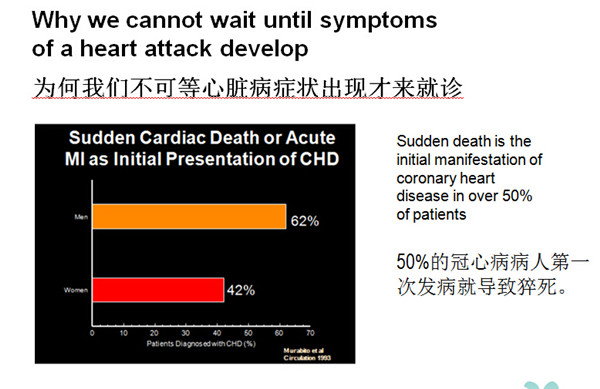Stents, stents, stents for sale, who wants a stent?
 |
|
[Photo provided to chinadaily.com.cn] |
Indications for percutaneous coronary intervention
These are the indications for coronary stenting as outlined by the British National Health Service:
? ST segment elevation myocardial infarction– A large acute heart attack o When available, angioplasty with stenting is the optimal method of reperfusion. The target time from attack to cath lab is 90 minutes.
? Non-ST elevation acute coronary syndrome– moderate heart attack with continuing anginal symptoms in spite of Optimal Medical Therapy
? Overall, angioplasty/stent treatment for non-acute coronary artery disease has shown no evidence of an effect on death or heart attack when compared with medical therapy
No study to date has demonstrated that angioplasty/stents in patients with stable coronary disease with angina pectoris improves survival rates. An evaluation of multiple studies reporting the data from 5,442patients with non-acute heart disease showed no advantage of angioplasty/stents over medical therapy for the individual endpoints of all-cause death, cardiac death, or heart attack. The findings from individual studies and systematic reviews of angioplasty/stenting versus medical therapy can be summarized as follows:
? Angioplasty/coronary stents reduces the incidence of angina but is not superior to Optimal Medical Therapy
? Angioplasty/coronary stents have not been demonstrated to improve survival in patients with stable angina (chest pain)
? Angioplasty/coronary stents may increase the short-term risk of heart attack and do not lower the long term risk.
Dr. Harlan Krumholz, a cardiologist and professor of medicine at Yale who was not involved in any of the sestudies, said that the findings hold a lesson for doctors treating heart patients. "When people are making decisions, it's important to disclose to them that this procedure — outside of an emergency — is not known to be lifesaving or to prevent heart attacks," he said. "The vast majority of people who have this procedure have the expectation that it will help them live longer. That belief is out of alignment with the evidence."
"Stenting belongs to one of the bleakest chapters in the history of Western medicine," said Nortin Hadler, a professor of medicine at the University of North Carolina at Chapel Hill. Cardiologists "are marching on" because "the interventional cardiology industry has a cash flow comparable to the GDP of many countries" and doesn't want to lose it, he said.
Chinese Dr. Hu Dayi, an internationally recognized cardiologist, one of the most revered physicians recently addressed this problem: “Many clinical studies have repeatedly proven that stents cannot prolong life for patients with stable coronary heart disease. The main effect of stenting is to relieve symptoms. Most of the symptoms can be relieved through rational use of medicines. Can stents prevent heart attacks or sudden death? The answer is: No!”






















